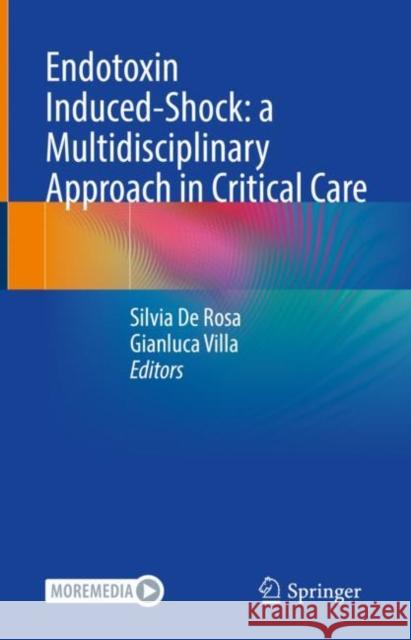Endotoxin Induced-Shock: A Multidisciplinary Approach in Critical Care » książka
Endotoxin Induced-Shock: A Multidisciplinary Approach in Critical Care
ISBN-13: 9783031185908 / Angielski / Twarda / 2023 / 133 str.
Endotoxin Induced-Shock: A Multidisciplinary Approach in Critical Care
ISBN-13: 9783031185908 / Angielski / Twarda / 2023 / 133 str.
(netto: 535,46 VAT: 5%)
Najniższa cena z 30 dni: 539,74
ok. 22 dni roboczych.
Darmowa dostawa!
This book provides easy consultation and guidance for an appropriate understanding and management of endotoxic shock. Endotoxic shock results from a severe, generalized inflammatory response induced by bloodstream infection with gram-negative bacteria. However, endotoxin-induced inflammatory activation may be disconnected by Gram-Negative threats (e.g. Gram-Positive and yeast infections) as well as occur in multiple clinical scenarios like post-cardiac arrest syndrome and trauma, possibly due to gut barrier dysfunction and consequent endotoxin translocation.The clinical management is structured focusing and dedicating a chapter for antibiotics, corticosteroids, volume support, vasoactive and cardiostimulating drug, coagulopathy and nutritional support. In addition, this book is remarkable because describing polymixin b hemoperfusion points out molecular interactions, and hydrodynamics of Sorption.Each section includes •) brief pathophysiology; •) principles of management; •) key messages. Readers can find updated tips related to the diagnosis and management of endotoxic shock with a multidisciplinary approach drawing a pathway from endotoxin structure and source and the related pathophysiology of endotoxic shock underling the specific clinical aspect and focusing on medical clinical management of endotoxemia and extracorporeal removal.The book – written by international opinion leaders of this field – is addressed to healthcare providers working in intensive care and represents a point of reference for intensivists, infectious disease physicians, nephrologists and critical care nurses involved in the management of endotoxic shock and enriched with useful downloadable material.
This book provides easy consultation and guidance for an appropriate understanding and management of endotoxic shock. Endotoxic shock results from a severe, generalized inflammatory response induced by bloodstream infection with gram-negative bacteria. However, endotoxin-induced inflammatory activation may be disconnected by Gram-Negative threats (e.g. Gram-Positive and yeast infections) as well as occur in multiple clinical scenarios like post-cardiac arrest syndrome and trauma, possibly due to gut barrier dysfunction and consequent endotoxin translocation.The clinical management is structured focusing and dedicating a chapter for antibiotics, corticosteroids, volume support, vasoactive and cardiostimulating drug, coagulopathy and nutritional support. In addition, this book is remarkable because describing polymixin b hemoperfusion points out molecular interactions, and hydrodynamics of Sorption.Each section includes •) brief pathophysiology; •) principles of management; •) key messages. Readers can find updated tips related to the diagnosis and management of endotoxic shock with a multidisciplinary approach drawing a pathway from endotoxin structure and source and the related pathophysiology of endotoxic shock underling the specific clinical aspect and focusing on medical clinical management of endotoxemia and extracorporeal removal.The book – written by international opinion leaders of this field – is addressed to healthcare providers working in intensive care and represents a point of reference for intensivists, infectious disease physicians, nephrologists and critical care nurses involved in the management of endotoxic shock and enriched with useful downloadable material.











